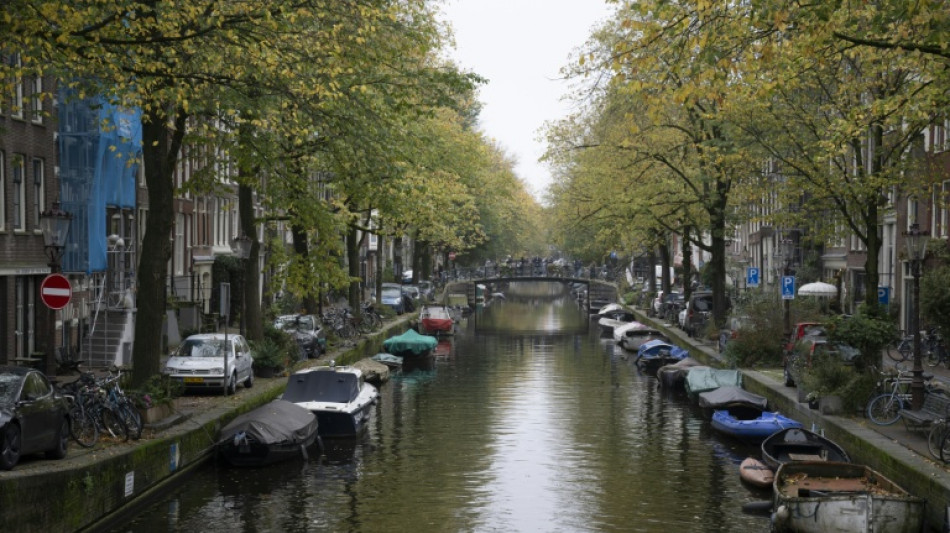

'A kind of freedom': Amsterdam celebrates 750 years
World-famous city of canals, bikes and tolerance, Amsterdam celebrated 750 years since its founding Monday, but the Dutch capital is now grappling with the very modern problems of overtourism and a housing shortage.
At 7:50 am exactly, in torrential rain, mayor Femke Halsema cut into a 75-metre-long cake, eventually divided up into 7,500 pieces and distributed around the city.
It was on October 27, 1275, that the citizens of Amstel dam (or "Amstelledamme") were first mentioned in an official document.
Seven-and-a-half centuries later, the city is home to nearly one million inhabitants, the largest in the Netherlands.
That number was swelled by a staggering 27 million day visitors in 2024, according to city hall.
Every day, tourists stream from the baroque Centraal Station looking for Vincent Van Gogh's sunflowers or -- in some cases -- other types of exotic plant.
The left-wing PvdA party, the majority on the city council, has floated a plan to ban tourists from central "coffee shops", in which cannabis can be consumed.
The idea is to clamp down on tourists who visit the city purely to enjoy its relaxed policy on smoking cannabis but also to encourage shop owners to move out of the centre.
For residents' pressure group "Amsterdam has a choice", efforts to crimp mass tourism are falling short.
"It's almost impossible to walk on the pavements because of long queues outside some TikTok must-see," the group writes on its website.
"Little by little, the city is losing its unique atmosphere."
In September, the group sued the city demanding more concrete action to keep to the legal limit of 20 million overnight stays per year.
- Red-light district row -
The city is also wrestling with how to deal with another illicit pleasure famous in Amsterdam: prostitution.
The central red-light district, where prostitutes tout for business behind windows, is the subject of red-hot debate.
Plans to uproot the women to a bespoke "erotic centre" way out of town next to residential districts have sparked uproar on all sides.
The idea is to reduce petty crime and nuisance in the area, but the prostitutes themselves are strongly against the plan, preferring to stay behind their iconic red windows.
If it gets the final go-ahead, construction of the new erotic district could start in 2031.
Like many cities in the densely populated Netherlands, Amsterdam is also wrangling with a housing crisis that hits young people especially hard.
Renting one room in the city centre can cost between 1,500 and 2,600 euros ($1,745 and $3,025), according to expat information website IAmsterdam.
"In 2024, Amsterdam was the city with the highest rents in Europe," according to a recent study by the city's university.
But neither these problems nor the driving rain dampened the enthusiasm of Chandenie Poniet, who woke up early to claim her slice of cake.
"I like the atmosphere, the people, it's so open. It's really nice here," the 27-year-old fashion producer told AFP.
Esther van Berlo, a 54-year-old psychologist, agreed.
"People are open and you can be whomever you want to be. You can think whatever you want to think and you can say... Yeah, a lot," she told AFP.
"It's a kind of freedom for me, Amsterdam."
J.Romagnoli--IM



